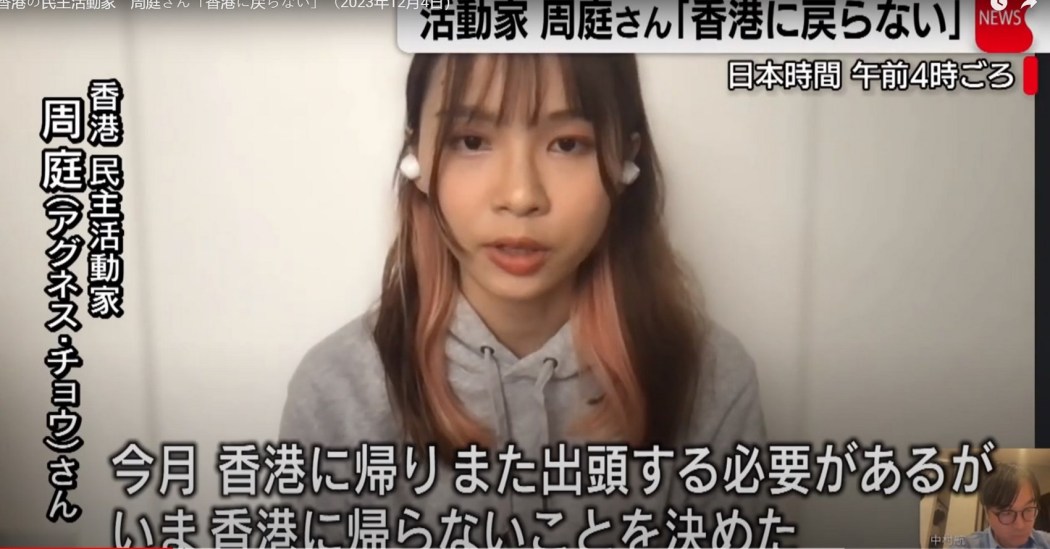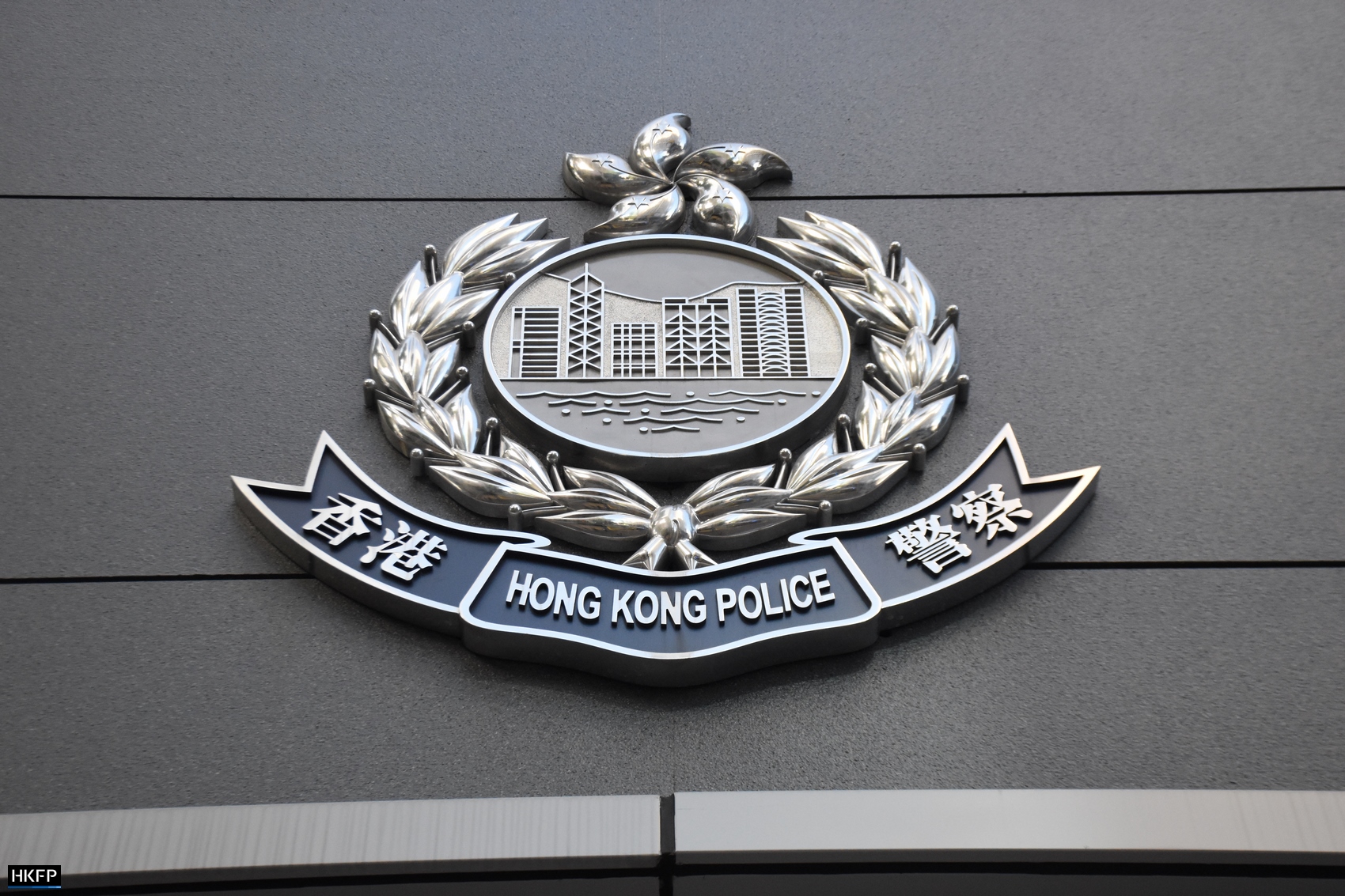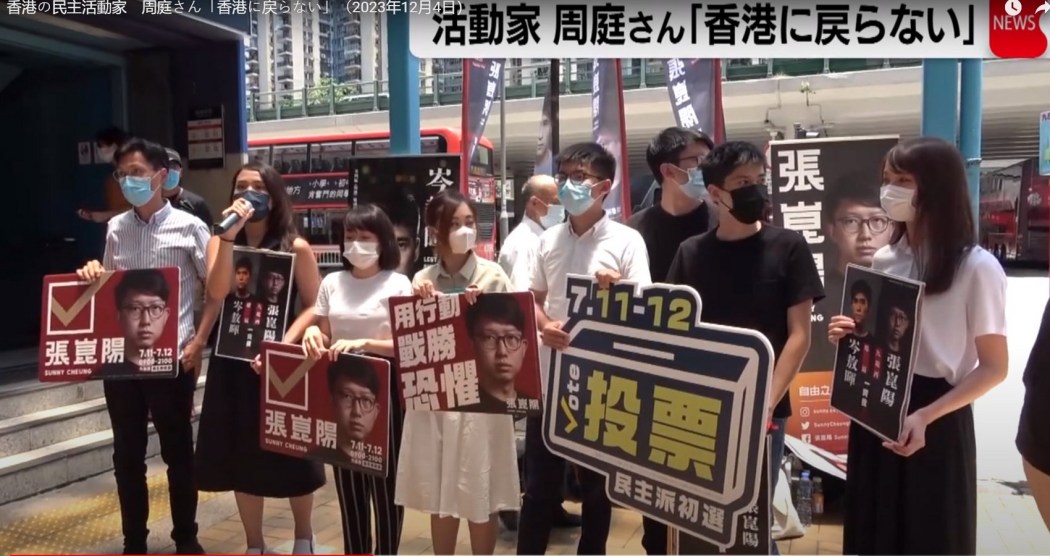Hong Kong pro-democracy activist Agnes Chow, who on Sunday revealed she had moved to Canada, has appeared on Japanese television to discuss her decision to leave Hong Kong, as national security police issued a statement condemning “someone’s recent claim of jumping Police bail.”
Speaking to TV Tokyo on Monday, Chow, 27, said in Japanese: “In December I have to return to Hong Kong to report [to the police], but I have decided not to. I think I can never go back [to Hong Kong].”

One of the best-known faces of the city’s protest movements, Chow had disappeared from spotlight after she was released from jail on June 12, 2021. She had served a 10-month sentence over an unauthorised assembly in 2019.
On Sunday, she broke her lengthy silence and revealed on Instagram that she had arrived in Toronto to study at a university and had decided not to return to Hong Kong. Her announcement made headlines in international media on Monday.
In a statement issued on Monday morning, the National Security Department (NSD) of the police said it had “noted someone’s recent claim of jumping Police bail in social media and strongly condemn the irresponsible action which is against and challenging the rule of law.”
Without naming Chow, the police said the woman in question had been arrested on August 10, 2020, for suspected “collusion with external elements” and later jailed for “other offences.” On that day, Chow was arrested alongside pro-democracy media tycoon Jimmy Lai and others. Chow was granted bail and her passport was confiscated by police.

Before leaving for Canada, Chow said she had been required to travel to mainland China with five police officers to learn about China’s achievements as a condition to get her passport back.
The Monday morning police statement said: “[the woman] earlier disclosed to Police that she wished to study abroad and provided admission documents as a proof. Hence, NSD returned the travel documents to her and extended her bail until December.”
“The police urge the person concerned to pull back before it’s too late, instead of choosing a road with no return and bearing the identity of ‘fugitive’ for the rest of her life,” the statement continued.

Ronny Tong, member of the Executive Council, said on Commercial Radio on Monday that he had never heard of visiting China as a condition to get back a passport. Tong added that bail conditions could be adjusted according to negotiations from both sides.
When asked by a Japanese reporter why she had not updated Instagram before Sunday, Chow said she had been suffering from depression and symptoms of post-traumatic stress disorder (PTSD) over the past three years. “I just could not do anything, ” Chow said.
She also said on Instagram that she felt constantly scared of arrest in Hong Kong. “Even when I returned home, I always imagined national security police knocking on my door early in the morning – just like last time, trying to break into my home and take me away on certain charges, ” Chow said.
When asked whether she would work to pursue democracy for Hong Kong in the future, Chow did not reply directly.
“To keep everyone’s attention on Hong Kong, I hope to do what I can, ” she said.

A former member of the defunct pro-democracy student group Scholarism, Chow became involved in politics at the age of 15. In 2016, she and fellow student activists Joshua Wong and Nathan Law founded the pro-democracy party Demosisto. She tried to run for the Legislative Council Hong Kong Island by-election but was subsequently disqualified from running.
‘Trip’ to mainland China
Chow said on Instagram that Hong Kong police offered to return her passport to allow her to study in Canada on the condition that she travelled with them to the mainland Chinese city of Shenzhen, where she said she went with five national security police officers in August.
She visited an exhibition showcasing China’s achievements after its opening-up and reform, and also visited the Shenzhen headquarters of the tech giant Tencent, she wrote.

She added that she was required to write a letter with the theme “Grateful to Hong Kong police, I learned about the great development of the motherland.”
HKFP has reached out to the police and Tencent for comment.
Beijing inserted national security legislation directly into Hong Kong’s mini-constitution in June 2020 following a year of pro-democracy protests and unrest. It criminalised subversion, secession, collusion with foreign forces and terrorist acts – broadly defined to include disruption to transport and other infrastructure. The move gave police sweeping new powers and led to hundreds of arrests amid new legal precedents, while dozens of civil society groups disappeared. The authorities say it restored stability and peace to the city, rejecting criticism from trade partners, the UN and NGOs.
Support HKFP | Policies & Ethics | Error/typo? | Contact Us | Newsletter | Transparency & Annual Report | Apps
Help safeguard press freedom & keep HKFP free for all readers by supporting our team























